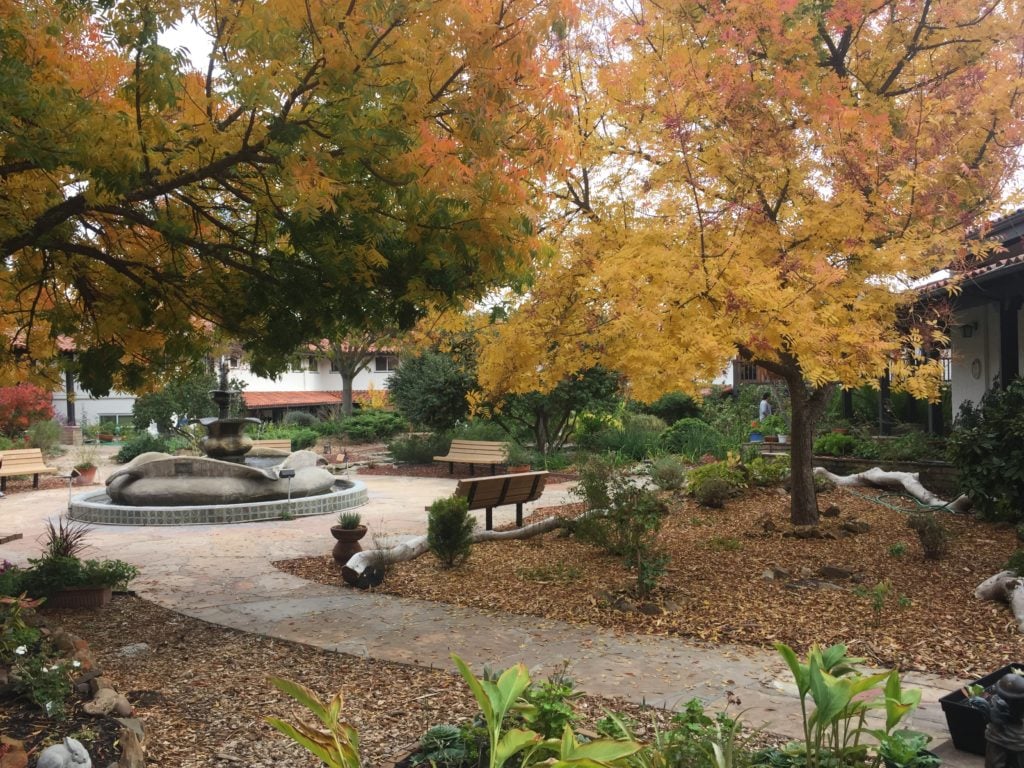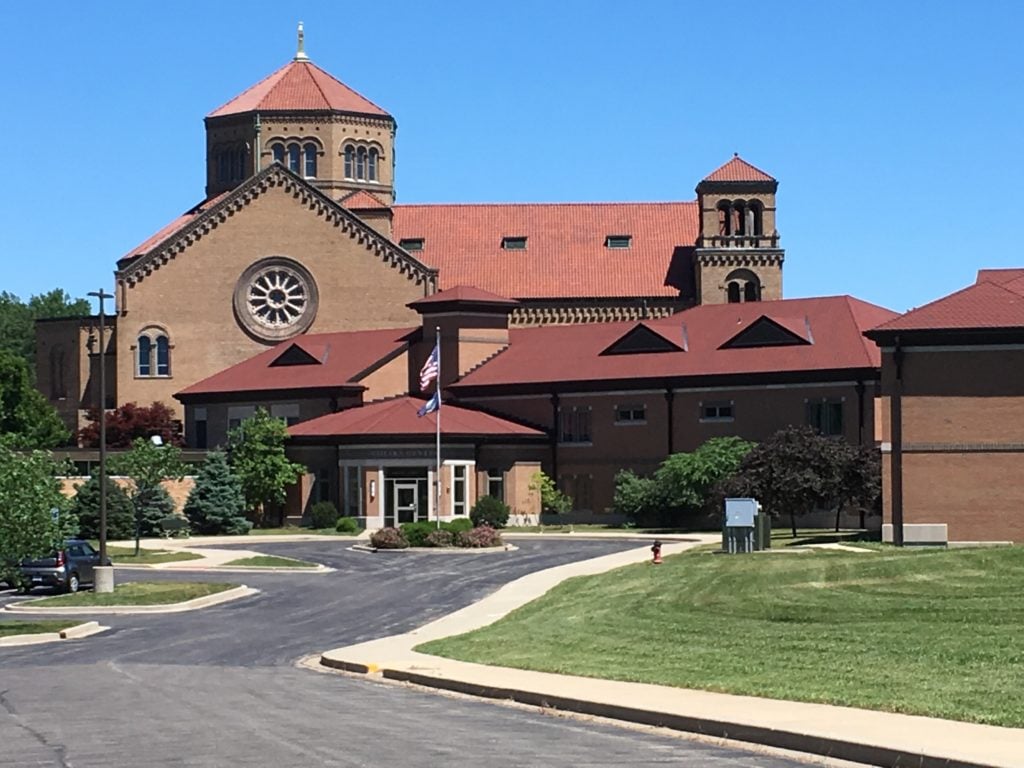If you have contemplated going on retreat at a monastery or abbey, you’ve likely heard of the Franciscan tradition or lineage. The name Francis of Assisi is fairly well-known, but what exactly do the friars, brothers, sisters, and priests of this tradition teach?
Many Franciscan centers across the globe offer retreats, teachings, and workshops to outsiders that are described as inclusive and welcoming of all faiths. But how can that be if the Franciscans have a focused faith? We spoke with Peter Wise of the San Damiano Retreat in Danville, California, and Dan Frachey of the Chiara Center in Springfield, Illinois, to get their take on the Franciscan Tradition as it is lived at their centers.
“It started with Francis of Assisi in the late 1200’s who had a regard for all living things, people, animals and so forth,” says Peter Wise. “One of the core motivations for Francis and the group of people that joined him, as he was not someone to build a movement or a crowd it’s just something that happened there in Northern Italy, was to ultimately be in service to others; to people in need. The core to his inspiration was his Catholic upbringing and his understanding of Christianity. When you get down to the basics of Christianity there’s just a couple of things that are attributed and very well documented to Jesus, which are: love God, love your neighbor and help each other out. This is a rough later inflation of it, and St. Francis embodied that.”
 San Damiano, California. Photo credit: Arturo Bazan
San Damiano, California. Photo credit: Arturo Bazan
From St. Francis’ teachings in Northern Italy, the Franciscan tradition has spread across the globe with a unique take on Christianity and Catholicism. Dan Frachey explains:
“I think one reason the new age movement has arisen with such prominence is because of how some have allowed the divorce of spirit and matter; something that various Christians have even accepted. Part of the cultural narrative holds to a kind of warring internal dualisim related to being a spiritual person in a material body. We’ve heard of the rockstar who asserts, ‘I can do what I want, I’m just a spirit trapped in this body that wants to have sex, drugs, and rock n’ roll’. And we’re like, no! As Franciscans, we harmonize the fusion of being embodied souls and so it’s about finding balance with spirit that helps us with finding truth of who we are. We would say every being is spiritual and thus, we’re constitutively spiritual beings. Everybody, even an atheist wonders, ‘why am I here? Where am I going? What’s all this about?’ Anytime anybody asks those questions, they are tapping into their spirit, in this universe.”
Some might say this is a dramatic departure from historically strict Catholic teachings, offering even atheists the grace of tapping into spirit through contemplation and readily voicing the parallels with Buddhism and other wisdom traditions. Dan Frachey speaks to how the Franciscans maintain integrity and inclusivity:
“Their is a great paradox in that, we as Christian say there’s this Jesus who embodies the mystery in a way we’ve never seen before, so follow him and look to him. When I look at the Christ, he’s not just the man of two thousand years ago in Nazareth. He is that Christ but he’s also so much more. He (Jesus) as Christ is an expansive reality. That gets some theologians into trouble when going too far and plumbing the depths of that proverbial iceberg, saying ‘what about the Great Mystery?’” Delving into contemplative depths, Franciscan brothers and sisters witness the presence of God, Spirit, and the Divine in everyone -- not just Catholics.
 Chiara Center, Illinois
Chiara Center, Illinois
“The Church in the 1960’s at the Second Vatican Council said what about non-Christians? What about non-Catholics? Does the Holy Spirit mean this divine energy exists outside the church? And the Church in its wisdom said, ‘Yes!’ I listen to you and I see sparks of what we call Holy Spirit, meaning flowing energy of divine love, so present in you. And I see it in my guests that stay with us today. So, that paradox means I can’t get too hung up on my particularity of being a Catholic Christian. My faith is important because that’s my story and my identity. You’ve got to be who you are if you’re going to be authentic, but don’t get so hung up on it that that’s the only lens available,” Dan says.
To summarize? “Franciscan spirituality is harmonizing spirit and matter. We’ve had what we’ve called over the centuries ‘heresy’, where somebody says, ‘let’s divide this, where spirit is good, matter is evil’. And Francis would be, ‘Oh no, we embody spirit’. In fact, some mystics in Catholic Christianity, like Hildegard Von Bingen in 11th century Germany, said, ‘I think the body is in the soul’ as opposed to the soul being some kind of sub category of this body, like some vapor that’s released when we die,” says Dan Frachey. The Franciscan faith gives seekers the gift of full embodied living. If the body is in the soul, if the divine spark exists in everything, then it would logically follow that all of life is sacred -- however you label your spiritual path.
This is what draws seekers of all faiths to retreat in the peace and stillness of Franciscan centers across the globe.
 Dan Frachey is the Chiara Center Program Director in Springfield, Illinois. To learn more about the center, visit their Retreat Guru page.
Dan Frachey is the Chiara Center Program Director in Springfield, Illinois. To learn more about the center, visit their Retreat Guru page.
 Peter Wise is the director of San Damiano in Danville, California. You can find the center's Retreat Guru page here.
Peter Wise is the director of San Damiano in Danville, California. You can find the center's Retreat Guru page here.
